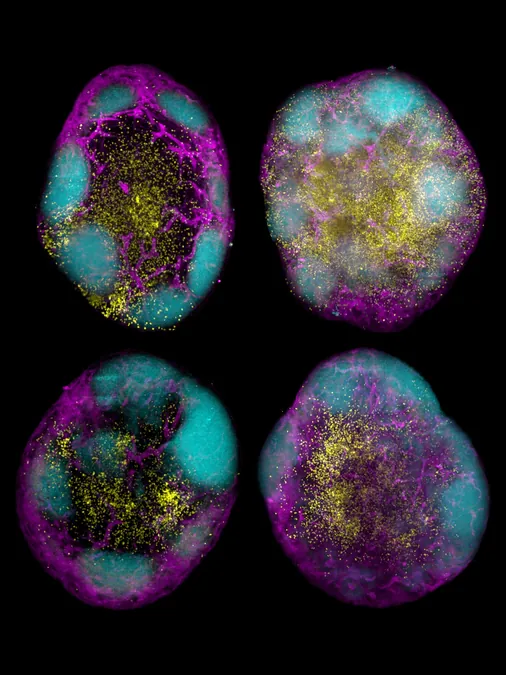
Revolutionary AI-Powered Peptides Could Save Citrus from Destruction!
2025-04-10
Author: Arjun
A Breakthrough in Citrus Disease Resistance
A groundbreaking study published in *Science* showcases the tremendous potential of artificial intelligence in agricultural science, especially in the fight against the notorious citrus greening disease, commonly known as huanglongbing (HLB). Led by Prof. Ye Jian from the Institute of Microbiology of the Chinese Academy of Sciences, this research uncovers the first-ever mechanism behind citrus resistance to this devastating ailment.
The Threat of Citrus Greening Disease
Citrus greening disease is wreaking havoc in orchards worldwide, costing billions annually in damages. This insidious disease is instigated by the bacterium *Candidatus Liberibacter asiaticus* (CLas) and transmitted by the Asian citrus psyllid. With no effective cure, HLB has laid waste to millions of acres of citrus across 50 countries, rendering all commercial citrus varieties vulnerable. Once a tree is infected, it usually succumbs within a few years.
Unlocking Nature's Secrets
In a valiant effort to address this catastrophic issue, researchers have pinpointed a crucial resistance pathway involving the transcription factor MYC2 and its partner E3 ligase, PUB21. By researching various citrus species and their relatives, such as the curry leaf plant and Sichuan pepper plant, they uncovered PUB21 paralogs that held the key to bolstering citrus resistance.
The Power of PUB21DN
This discovery revealed a dominant-negative form of PUB21 known as PUB21DN. Featuring a critical mutation that suppresses PUB21's activity, PUB21DN stabilizes the MYC2 protein, enhancing defense pathways and leading to a significant increase in antibacterial metabolite production—ultimately granting immunity to HLB. Transgenic citrus plants engineered to overexpress this mutant showed remarkable resistance to the disease.
Revolutionizing Treatments with AI
Building on this natural resistance, the team employed AI-driven screening technology to inhibit PUB21 activity, leading to the identification of a game-changing set of anti-proteolysis peptides (APPs), including APP3-14. These innovative peptides not only effectively targeted the bacterial culprit, CLas, but also excelled at interrupting disease transmission, achieving an impressive 80% control efficiency in just a single season!
A New Era for Eco-Friendly Solutions
This breakthrough offers a dual advantage: the creation of druggable peptides for environmentally friendly bio-pesticides and a pioneering strategy to combat uncultivable pathogens. The implications stretch beyond HLB; this approach may also provide solutions for other plant diseases, such as maize rust fungus and the plant pathogen behind Olive Quick Decline Syndrome (OQDS).
Hope for Global Agriculture
By strategically targeting pathogen effectors and stabilizing host immune proteins, this study heralds a new age of innovative disease-resistance strategies across various crops, igniting hope for agricultural sustainability on a global scale. The fight against HLB and similar agricultural threats has just received a monumental boost!





 Brasil (PT)
Brasil (PT)
 Canada (EN)
Canada (EN)
 Chile (ES)
Chile (ES)
 Česko (CS)
Česko (CS)
 대한민국 (KO)
대한민국 (KO)
 España (ES)
España (ES)
 France (FR)
France (FR)
 Hong Kong (EN)
Hong Kong (EN)
 Italia (IT)
Italia (IT)
 日本 (JA)
日本 (JA)
 Magyarország (HU)
Magyarország (HU)
 Norge (NO)
Norge (NO)
 Polska (PL)
Polska (PL)
 Schweiz (DE)
Schweiz (DE)
 Singapore (EN)
Singapore (EN)
 Sverige (SV)
Sverige (SV)
 Suomi (FI)
Suomi (FI)
 Türkiye (TR)
Türkiye (TR)
 الإمارات العربية المتحدة (AR)
الإمارات العربية المتحدة (AR)